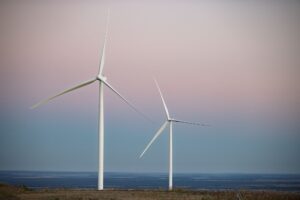Some time last Friday, the world’s level of atmospheric CO2 passed the level of 400 parts per million. It’s smack bang in the middle of where global governments have said should be the limit (450ppm), and where scientists are increasingly saying we should have stopped (350ppm). It was a symbolic milestone, but is anyone listening?
We know that governments are not, because their actions fall well short of their own aspirations and commitments. That is true of Australia, and both mainstream parties, as it is of just about every other government in the world.
Ironically, there are signs now that the investment and business communities are starting to cotton on – not in any coherent or systematic way, but in a manner which is becoming increasingly significant.
Let’s take coal, for instance. Greg Hunt justified the coalition’s Direct Action policy in a speech to an ANU seminar on climate change last month at least partly on the premise that China was not about to curb its coal demand. He cited Minister Wu Yin who had indicated last year that Chinese coal consumption would continue to grow to 7.5 billion tonnes a year by 2030.
A lot has happened since then. China has, in fact, this year stated that it will put a cap on coal use of around 4 billion tonnes. Deutsche Bank has suggested that China could cease being an importer of coal within a few years.
And that is having an impact on the market – even coal companies are baulking at sinking shareholder funds into what seem certain to be stranded assets. In the US, the third of six planned coal export terminals has been scrapped. In Australia, Glencore Xstrata this week cancelled its $1 billion investment in a coal export terminal in Queensland, and the $5 billion upgrade of the Newcastle coal loader in NSW has also been put on hold.
Deutsche Bank suggests that others should follow, and says if market conditions continue to decline – and it expects they will – then the grand plans of Clive Palmer and Gina Rinehart to construct Australia’s biggest ever coal mines and billions of dollars of associated infrastructure in Queensland around the Galilee Basin, will come to nought.
Of course, the coal industry and the mining lobbyists are blaming the Australian government. Clive Palmer was promising 50,000 jobs in the ABC TV program Q&A on Monday night. But the simple fact is that demand for thermal coal is not rising as expected, and there will simply be no market for new coal mines.
Gradually, the investment world is taking greater notice of the “carbon budget” – Citgroup says it is not a matter of if, but when. The IEA, S&P, HSBC, and numerous fund managers are taking this on board, and are issuing warnings about capital risk on long life investments that have a clouded future.
Still, our politicians plough on regardless. The Coalition’s Direct Action policy assumes no global action, and no requirement on Australia to reach any more than a 5 per cent reduction target.
But the muddle-headed thinking is now spreading to the Labor Party. Much has been written on the European ETS and how it is a supposed failure, but the market is simply acting as it is supposed to. The EU is on track for what now appears a relatively modest emissions reduction target of 20 per cent, so the prices of carbon have fallen, exacerbated by oversupply caused by too many free permits. A political deadlock, caused mostly by coal-dependent Poland, is preventing the EU from doing the obvious and raising its target.
Australia is linking its ETS with Europe, so if it stays beyond the next government the carbon price falls to the European level, which isn’t much good to help the sort of investment required to create the new industries to replace the declining coal industry and other redundant technologies.
Yet it seems Labor is determined to wind back the other mechanisms that will aid that investment, reportedly threatening to trim $200 million from the Australian Renewable Energy Agency. The Coalition has promised to ditch the Clean Energy Finance Corp and all the institutions that might contribute independent and considered advice on climate and energy policies.
Another likely post-election victim will be the Clean Technology Investment Program (CTIP), which has shown that manufacturing companies have a deep capacity to cut their energy use and emissions given incentives that reduce the capital cost by up to one-third or one-half. Market advisers say manufacturers improving their efficiency through this program have made up to 20 per cent cuts in their emissions, or more.
”Surely if the carbon price halves, then the heavy lifting for achieving carbon emissions must be then carried by the ‘direct action’ programs like CTIP?” said Energetics executive director, Jon Jutsen, this week.
“So the last thing you would do is to reduce the funding for the most effective of these programs, but instead ideally increase the available funding. This means that programs like CTIP and ARENA should be BOOSTED if you cut the carbon price, not CUT,” Jutsen said.
All this while the South Korean government prepares its own emissions trading scheme that Bloomberg New Energy Finance says will set a price of $90/tonne. It released a White Paper overnight in conjunction with Ernst & Young that said the South Korean scheme will cap around 70% of its greenhouse gas emissions and is the most ambitious yet proposed anywhere.
The predicted price of $90/tCO2 reflects a combination of factors: ambitious reduction targets, the relatively high cost of reducing emissions within the country, and restrictions on the use of offset credits from abroad. BNEF expects that the other major carbon market in the world – beyond the EU/Australian scheme – the California-Quebec market may trade around $50/tCO2 by 2020.








